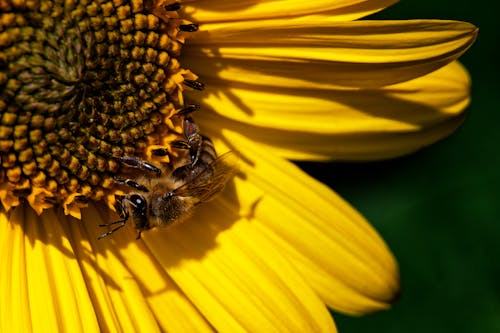
A successful agribusiness today is not just about technology and yields, but also about respect for the environment, partners, and consumers.
In this context, the use of certified Plant Protection Products (PPPs), along with constructive communication with beekeepers, becomes a guarantee for preserving the ecosystem, upholding the reputation of Ukrainian agricultural products on the international stage, and developing export potential.
Let’s examine how adherence to agrochemical ethics and digital services for interacting with beekeepers contribute to the growth of exports, particularly of Ukrainian honey, to European and global markets.
Using Quality PPPs is Not a Choice, but a Necessity
The problem of counterfeit PPPs is extremely acute not only in Ukraine but also worldwide. Using such products is like playing roulette with unpredictable and often devastating consequences. Counterfeit pesticides pose a particular danger because their effects are unpredictable, and the harm they cause can be significant and long-lasting.
A counterfeit PPP is a mixture of untested, hazardous substances of unknown origin. Such mixtures can have not only short-term negative consequences but can also continue to harm the environment and human health in the long term, depending on the decomposition period of these unknown components and the extent of their impact.
Counterfeit products cause comprehensive damage:
- To the state: The existence of a market for counterfeit PPPs leads to a loss of tax revenue, as well as reputational damage in international markets.
- To agricultural production: A reduction in the quality and quantity of the harvest.
- To the environment: Contamination of soils and crops with unknown chemicals, as well as the destruction of bee colonies.
- To people: Health risks for the operator applying the product, as well as for the end consumer.
Counterfeit PPPs are especially dangerous for bees—they often contain toxic substances that lead to the mass death of bee colonies, disrupt pollination, and reduce biodiversity. Even a small amount of pesticides of unknown origin can have disastrous consequences for the ecosystem, as a decline in the bee population means lower yields and significant economic losses for both agricultural producers and beekeepers.
That is why it is critically important to use high-quality, registered PPPs that are included in the State Register of Pesticides and Agrochemicals of Ukraine. It is equally important to strictly adhere to the rules for their application, in accordance with legislation and the manufacturer’s instructions. This is not only a legal requirement, the violation of which entails fines, sanctions, and sometimes criminal liability, but also a guarantee of safe, effective, and responsible agricultural production.
Remember—plant protection must be effective, safe, and responsible! By purchasing PPPs only from trusted suppliers and following application regulations, you demonstrate responsibility to the environment, beekeepers, and consumers.
On the Path to Understanding: Establishing Communication Between Farmers and Beekeepers
In recent years, there has been a gradual improvement in communication between agricultural producers and beekeepers. The main changes have occurred thanks to a long-term information campaign on establishing effective interaction, the introduction of digital services, an increased level of responsibility among farmers, and the mobilization of beekeeping communities.
Most farmers are aware of the risks (including financial ones from beekeepers’ complaints) and comply with legal requirements for notifying about field treatments. More self-regulated initiatives are emerging among agricultural producers who are introducing internal standards for interaction with beekeepers.
In recent years, agricultural producers and beekeepers have been more actively using digital services to coordinate their actions:
- An electronic service for advance notification of the application of plant protection products was introduced as part of the launch of the first stage of “eBeekeeping” in the State Agrarian Register (SAR).
- To report planned work involving PPPs, agricultural producers have begun creating chatbots and groups in messengers, and SMS notification systems have become a popular means of communication at the local level.
From Cooperation to Export Achievements
Well-established cooperation between farmers and beekeepers directly contributes not only to the preservation of healthy bee colonies but also to a significant increase in the export of Ukrainian honey.
In 2024, despite the challenges of the full-scale war, Ukrainian honey continues to show stable positive dynamics on the world market.
According to last year’s results, Ukraine ranks 4th in honey exports among the traditional world leaders:
- #1: China (152.6 thousand tonnes)
- #2: India (98.7 thousand tonnes)
- #3: Argentina (68.9 thousand tonnes)
- #4: Ukraine (55.4 thousand tonnes)
- #5: Brazil (28.5 thousand tonnes)
The European Union remains the key market, receiving the lion’s share of exports (92% in value terms, which amounted to $112 million in 2023). Here, for the third consecutive year, Ukraine holds second place among suppliers (52 thousand tonnes), second only to China.
The largest sales volumes were to: Germany (14.1 thousand tonnes), Poland (8.8 thousand tonnes), France (5.9 thousand tonnes), Spain (3.3 thousand tonnes), Italy (3.2 thousand tonnes), Greece (2.8 thousand tonnes), and Romania (2.6 thousand tonnes). In addition, Ukrainian honey was also present in other markets, namely: the USA, Turkey, Great Britain, Japan, Switzerland, Canada, Qatar, and Jordan. These results were made possible by the coordinated cooperation between agricultural producers and beekeepers.
The Path of Mutual Understanding and Sustainable Development
As we can see, the safe and regulated use of PPPs protects the environment, human health, and bees. Constant and effective communication between farmers and beekeepers, supported by modern digital tools, helps minimize risks and build a mutually beneficial partnership. Work in this direction is still ongoing, as effective mechanisms for interaction are a shared task for all market participants for the sake of the sustainable development of the agricultural industry.
Specially for AgroPortal.ua
